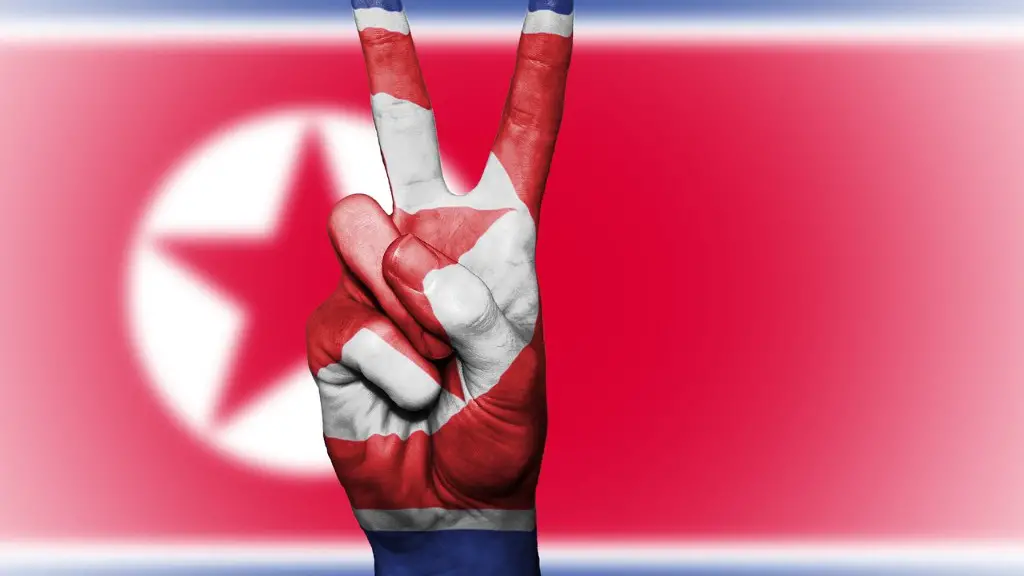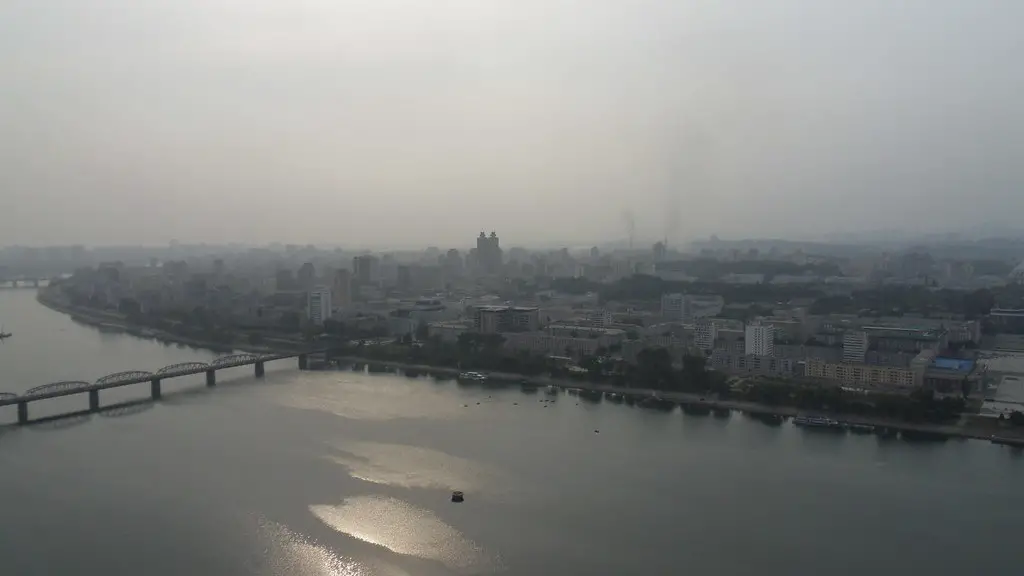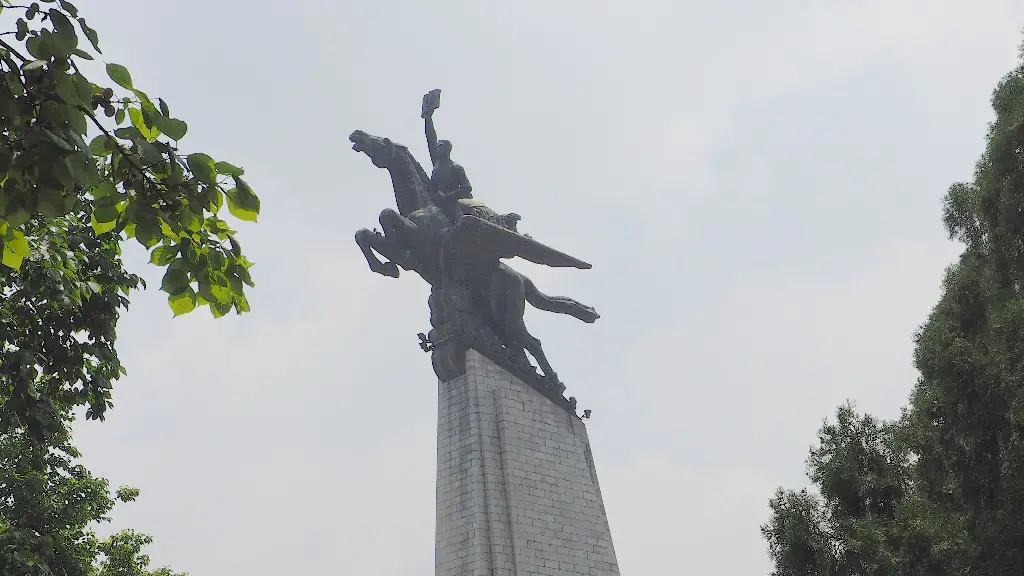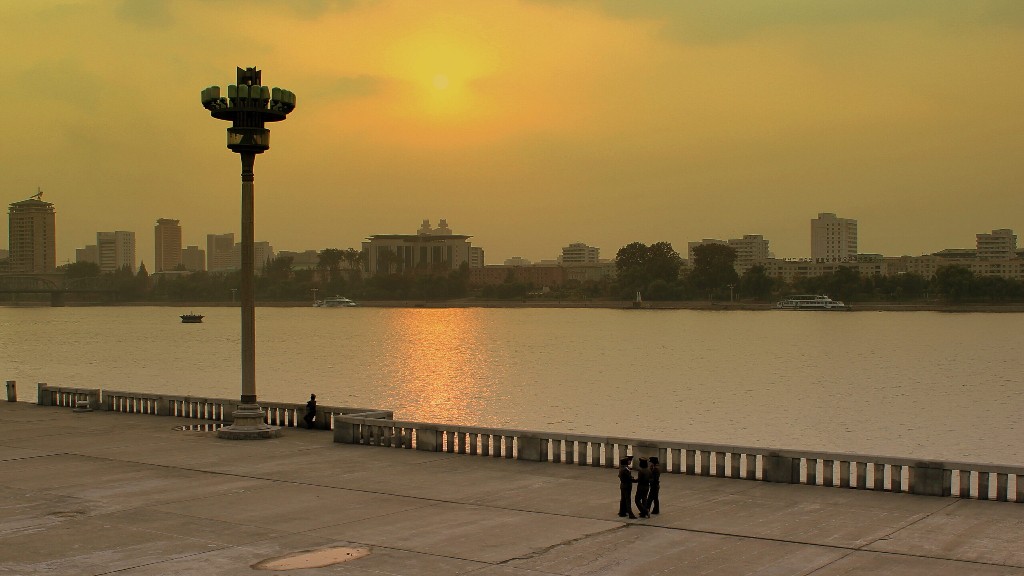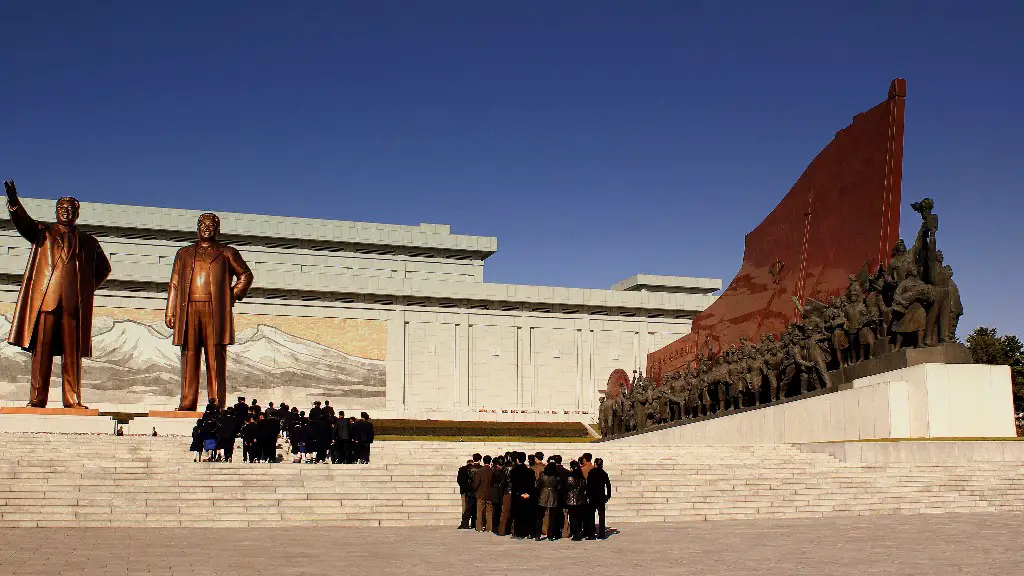Overview
North Korea has been internationally isolated for many years, but the situation has recently become critical as the country launches multiple ICBM launch tests and continues to develop its nuclear capabilities. Even though the United Nations has condemned these developments, it has not been able to take any effective action to stop the North Koreans from carrying on with their nuclear ambitions. In this article, we look at why the UN has been unable to stop North Korea and the options that might be available.
History
North Korea has been in a state of military armament since the end of the Korean War in 1953. During this time, the country’s leader Kim Il Sung and his son Kim Jong Il have adopted a policy of isolationism, with the country suffering from sanctioned economic aid and international isolation. In 2017 Kim Jong Un assumed power after the death of his father, vowing to continue the policy of isolation.
Since 2012, North Korea has been developing an increasingly sophisticated nuclear missile program, testing multiple intercontinental ballistic missiles as part of a military program and intimidating South Korea and other countries in the region. The United Nations has repeatedly denounced North Korea and imposed sanctions on the country.
International Reaction
The response to North Korea’s ambitions has been remarkably split, with some countries calling for military intervention in order to end the nuclear threat, while others have preferred to pursue diplomatic options. Most recently, the UN Security Council voted unanimously to impose a new round of sanctions on North Korea.
However, even though the UN has been able to pass resolutions and apply pressure on the North Koreans, its lack of a military power means that it cannot enact any of its resolutions. This has left the international community in an impasse and with no clear way to resolve the situation.
Sanctions
The lack of a military option to stop North Korea has meant that the UN has been forced to impose a range of economic sanctions on the country. Since 2006, the UN has tightened sanctions on North Korea and imposed new restrictions on its weapons programs, financial transactions, and diplomatic contacts. These sanctions have had a limited effect, with the North Koreans continuing to develop their nuclear program, though they have had some impact in terms of deterring other countries from supporting them.
The US has also imposed a range of unilateral sanctions on North Korea and has pressured China, the country’s ally, to do the same. These sanctions have been aimed at reducing the amount of revenue that North Korea can generate and restricting its access to the international financial system. However, these too have had limited success.
Diplomatic Strategies
There have also been attempts to resolve the conflict diplomatically. The UN has encouraged the peaceful resolution of the conflict and in 2018, South Korean President Moon Jae-in held talks with North Korean leader Kim Jong-un, in the first inter-Korean summit since 2007. The two leaders declared their commitment to denuclearization, but little progress has been made since then.
The US has also attempted to resolve the situation diplomatically, with President Donald Trump meeting with Kim Jong Un at a summit in Singapore in 2018. At the summit, the two leaders agreed to work towards denuclearization, but since then North Korea has been reluctant to make any concrete moves.
Conclusion
It is clear that the UN has not been able to stop North Korea from furthering its nuclear ambitions. The international community has attempted to use a range of strategies, ranging from economic sanctions to diplomatic talks, but none of these have been successful in stopping the North Koreans. It is likely that the only way to resolve the situation will be through direct negotiations between the US and North Korea, though it remains to be seen if this is possible.
Alternative Strategies
The issue of North Korea is a difficult one, and it is clear that there is no easy solution. While it is unlikely that any international strategy would be successful, there are some alternative strategies that may help manage the situation in the short term. For example, countries in the region could make direct contact with North Korea and attempt to persuade it to curb its nuclear program in exchange for a more open relationship with the international community.
In addition, countries should continue to pressure North Korea by increasing sanctions and presenting a united front against the regime. The UN has led the way on this front, but countries such as the US and South Korea can also put diplomatic pressure on North Korea. This could help to bring the regime to the negotiating table and may encourage it to make concessions.
Regional Cooperation
Given the complexity of the situation, regional cooperation is essential if meaningful progress is to be made. China, in particular, has an important role to play, as it is North Korea’s primary trading partner and ally. China could act as a mediator between North Korea and the international community and could use its influence to help bring about a peaceful resolution to the conflict.
Russia has also been willing to use its ties with North Korea to help resolve the conflict. It has hosted talks between North Korea and South Korea in the past and has also worked to maintain a dialogue between the US and North Korea. This is an encouraging sign and suggests that there is potential for a diplomatic solution.
Impact of Sanctions
It is important to remember that sanctions can have mixed results, and even though they may be effective in the short-term, they can also have long-term implications. Sanctions can lead to a decrease in economic activity, and in extreme cases can lead to shortages of basic necessities such as food and medicine. This could have a devastating effect on the population, particularly those in rural areas, and may exacerbate the tensions within the country.
It is also important to consider the impact of sanctions on the international community. The UN has imposed a range of sanctions on North Korea, but these have had limited success. If sanctions are not effective, they could cause long term economic and political damage to the international community, leading to further tension and instability.
Sources of Aid
Despite the international community’s efforts, North Korea continues to suffer from an international isolation. There have been some signs that countries are willing to provide aid to North Korea, such as China providing humanitarian aid, but these have been sporadic and mostly limited to food and medicine.
More recently, there has been a shift towards providing economic aid, with countries such as Russia, Japan and South Korea providing funding and technological assistance. This economic aid has been seen as a way to encourage North Korea to negotiate, though it is unclear how successful this strategy has been.
Options for the Future
The situation in North Korea is an extremely complex one and it is unlikely that any single option can bring about a resolution. It is essential for the international community to come together and present a unified front in order to put pressure on North Korea. Economic and diplomatic strategies are key but it is essential for countries to remain firm in their convictions and keep up the pressure even if progress is slow.
The US and North Korea must also be willing to engage in direct negotiations, as this is the only way to bring about a lasting resolution to the conflict. In addition, countries outside of the region should continue to provide humanitarian and economic aid to the North Korean people, as this may help build trust and lessen the tensions between the two sides.
